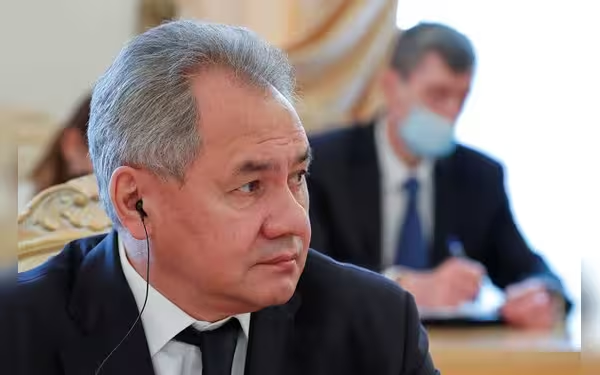Saturday, November 16, 2024 05:58 PM
Russia And China Unite Against U.S. Containment Strategies
- Russia and China emphasize alliance against U.S. threats.
- Shoigu criticizes U.S. 'dual containment' strategy.
- Economic and military cooperation aims to reshape global order.
 Image Credits: thefrontierpost
Image Credits: thefrontierpostRussia and China strengthen their alliance to counter U.S. containment strategies, emphasizing global stability and cooperation.
In recent discussions, Russian and Chinese officials have emphasized the importance of their alliance in the face of perceived threats from the United States. The geopolitical landscape has shifted significantly, with both nations viewing the U.S. as a dominant force attempting to contain their growth and influence. This situation has led to heightened tensions and a reevaluation of international relationships.
During a meeting in Beijing, Russian Security Council Secretary Sergei Shoigu articulated the need for Russia and China to work together against what he termed the "dual containment" strategy employed by the United States. This strategy, according to Shoigu, aims to limit the power and reach of both nations, which he believes is detrimental not only to Russia and China but also to global stability.
China's President Xi Jinping and Russia's President Vladimir Putin have previously declared a "new era" of partnership, positioning themselves as counterweights to U.S. influence. They argue that the U.S. has acted as an aggressive hegemon, creating chaos in various regions around the world. This perspective is rooted in historical grievances, including the fallout from the Soviet Union's collapse in 1991 and the long history of European colonialism in China.
As the U.S. continues to impose tariffs and engage in trade disputes, fears of a potential trade war loom large. President-elect Donald Trump has made it clear that he views China as a significant competitor, which only adds to the urgency of the discussions between Russia and China. The two nations are keenly aware that their economic and military cooperation could serve as a stabilizing force in a world increasingly characterized by uncertainty.
The alliance between Russia and China is not merely a reaction to U.S. policies but a strategic partnership aimed at reshaping the global order. As both nations navigate the complexities of international relations, their collaboration may redefine power dynamics and influence future geopolitical developments. Understanding these shifts is crucial for grasping the evolving landscape of global politics.













